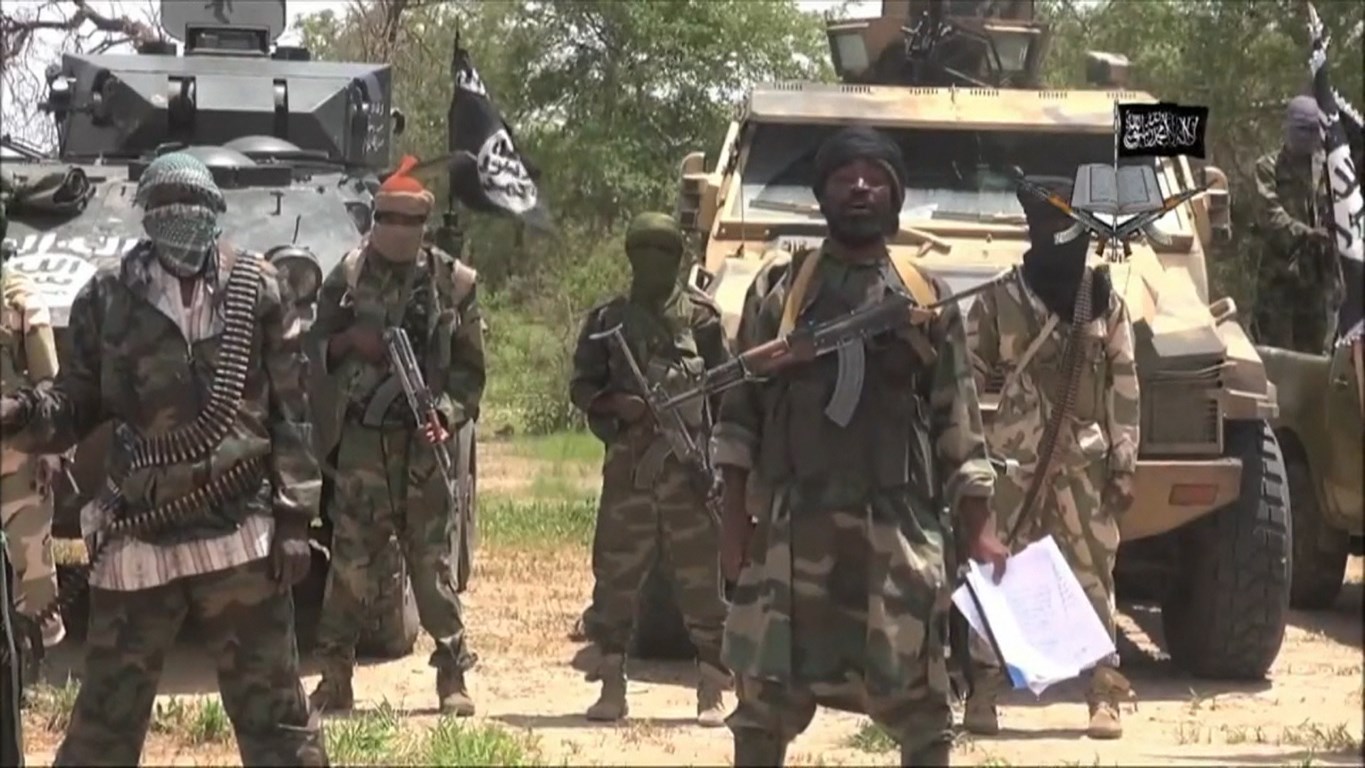Boko Haram- a sharp rise
September 5, 2017 | Expert Insights

Amnesty International has voiced alarm over a sharp rise in crimes committed by the Nigeria-based Boko Haram terror group. A surge in attacks by Boko Haram fighters has claimed nearly 400 lives since April in Nigeria and Cameroon.
In a statement on Tuesday, the UK-based rights group said Boko Haram has been increasingly using bombers, mainly young women and girls, to set off explosives in the two countries. At least 381 civilians have been killed.
Boko Haram
Nigeria's militant Islamist group Boko Haram has caused havoc in Africa's most populous country through a wave of bombings, assassinations and abductions. The group is fighting to overthrow the government and create an Islamic state. The group was founded in 2002 with the official name as Jama'atu Ahlis Sunna Lidda'awati wal-Jihad, which in Arabic means "People Committed to the Propagation of the Prophet's Teachings and Jihad".
Boko Haram promotes a version of Islam which makes it "haram", or forbidden, for Muslims to take part in any political or social activity associated with Western society. This includes voting in elections, wearing shirts and trousers or receiving a secular education.
Boko Haram regards the Nigerian state as being run by non-believers, regardless of whether the president is Muslim or not - and it has extended its military campaign by targeting neighbouring states.
Analysis
"Boko Haram is once again committing war crimes on a huge scale, exemplified by the depravity of forcing young girls to carry explosives with the sole intention of killing as many people as they possibly can," said Alioune Tine, Amnesty International's director for West and Central Africa.
In 2009, Boko Haram carried out a spate of attacks on police stations and other government buildings in Maiduguri, capital of Borno state. This led to shoot-outs on Maiduguri's streets. Hundreds of Boko Haram supporters were killed and thousands of residents fled the city.
Nigeria's security forces eventually seized the group's headquarters, capturing its fighters and killed the founder Mohammed Yusuf. His body was shown on the state television.
In 2013, the US designated it a terrorist organisation, amid fears that it had developed links with other militant groups, such as al-Qaeda in the Islamic Maghreb. The group then began to carry out more audacious attacks in northern and central Nigeria, including bombing churches, bus ranks, bars, military barracks and even the police & UN headquarters in the capital, Abuja.
In April 2014, Boko Haram drew international condemnation by abducting more than 200 schoolgirls from Chibok town in Borno state, saying it would treat them as slaves and marry them off - a reference to an ancient Islamic belief that women captured in conflict are considered war booty.
And it switched tactics, starting to hold on to territory rather than retreating after an attack.
But by March 2015, Boko Haram had lost all the towns under its control as a regional coalition - made up of troops from Nigeria, Cameroon, Chad and Niger - was formed to fight it.
In August 2016, the group apparently split, with an IS video announcing that Abubakar Shekau, leader of Boko Haram had been replaced with Abu Musab al-Barnawi, believed to be a son of Boko Haram's founder.
Shekau disputed this, insisting he was still in charge.
And in a big surprise, 21 of the Chibok girls, seen as prized assets for Shekau, were freed in October 2016. But with Amnesty International saying that some 2,000 children remain in captivity, many more are still to be freed.
In early May 2017, the group released 82 schoolgirls who had been abducted from Chibok in 2014 after almost two years of negotiations. Amnesty said, “Between May and August, seven times more civilians were killed than in the preceding four months, while 100 civilians were killed in August alone.”
Assessment
Our assessment is that, we feel the surge in violence may be due to the defeat of ISIS in Syria. Islamist fighters are continuously seeking to find new territories to operate and is definitely a close nexus between ISIS and Boko Haram.








Comments